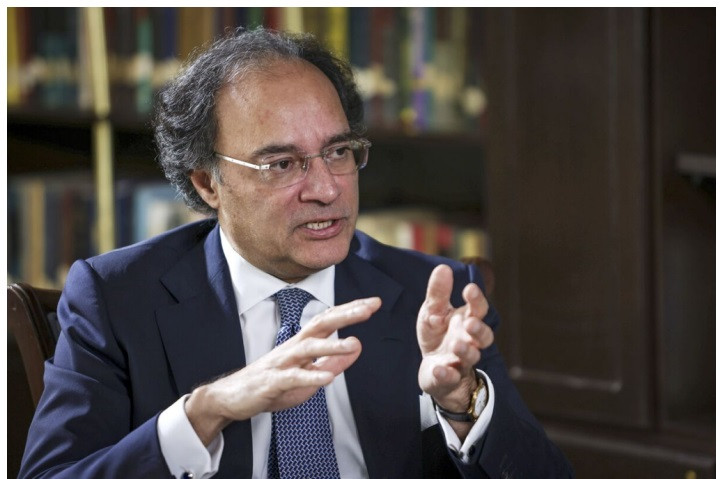FearlessRoar
T20I Star
- Joined
- Sep 11, 2023
- Runs
- 30,521
Pakistan’s weak debt affordability drives ‘high debt sustainability risks’: Moody’s
Global rating agency Moody’s on Friday said that the country’s weak debt affordability drives high debt sustainability risks as it noted that the government spends more than half its revenue on interest payments.
In a comment regarding the newly finance bill for the fiscal year (FY) 2025, it said, “The budget estimated debt servicing payments to have increased by about 18pc for fiscal 2025 compared with a year ago.”
“The government spends more than half its revenue on interest payments, indicating very weak debt affordability which drives high debt sustainability risks” it said, adding that “about 55pc of fiscal year 2025 revenue (Rs9.8 trillion) is earmarked for interest payments on the government’s debt”.
Regarding the increase in expenditure, the rating agency said it reflected “lack of significant cost-containment measures and Pakistan’s very high interest payments”.
It was quick to note that the subsidies increased by 27pc to Rs1.4 trillion, “mainly driven by large increases in subsidies to the power sector” which reflected litte progress in energy sector reforms.
Overall, the rating agency said that budget reflected “quicker fiscal consolidation, but ability to sustain reforms will be key to easing liquidity risks”.
Moreover, the agency echoed the same sentiments as experts as it highlighted that the finance bill “will likely support Pakistan’s ongoing negotiations with the IMF for a new Extended Fund Facility (EFF) programme that will be crucial for the government to unlock financing from IMF and other bilateral and multilateral partners to meet its external financing needs”.
However, it cautioned that the government’s ability to “sustain reform implementation” will be key to meeting the budget targets and unlocking external financing, which is necessary for easing of liquidity risks.
It highlighted that “a resurgence of social tensions on the back of high cost of living — which may increase because of higher taxes and future adjustments to energy tariffs — could weigh on reform implementation.
“Moreover, risks that the coalition government may not have a sufficiently strong electoral mandate to continually implement difficult reforms remain,” it commented.
In the budget, the government had announced a consolidated budget deficit of 5.9 per cent of the GDP for the fiscal year 2025 — from the previous year’s estimated 7.4pc — with the primary balance set at a surplus of 2pc of GDP for the upcoming year, the report recounted.
Additionally, the government has projected real GDP growth at 3.6pc and headline inflation at 12pc. It also sought to increase federal government revenue to an ambitious Rs17.8trillion — 46pc higher than previous year’s — through a “combination of new taxes and stronger nominal growth”.
According to the comment, this showed that “the government seeks to achieve quicker fiscal consolidation mainly through increases in revenue, with little spending-containment measures”.
The World Bank in its ‘Global economic prospects’ report said that Pakistan’s growth was expected to pick up at 2.3pc in FY25, where else “industrial activity and confidence are projected to improve mainly due to easing import restrictions and moderating inflation, although they remain constrained largely as a result of tight macroeconomic policies”.
The report said that the growth is assumed under “continued sound macroeconomic management, progress with structural reform implementation, and continued multilateral inflows and bilateral rollovers, which would boost investor confidence”.
Regarding inflation, the report noted that inflation had “moderated over the past year due to high base effects coupled with the stabilisation of the exchange rate, but it remains high”.
On a more positive note, it said that “foreign exchange reserves have increased in several countries, including Pakistan and Sri Lanka, reflecting the easing of currency pressures and receipts of official flows”.

Pakistan’s weak debt affordability drives ‘high debt sustainability risks’: Moody’s
"The government spends more than half its revenue on interest payments," the report says.
www.dawn.com

































